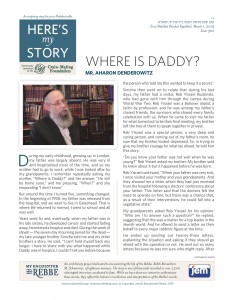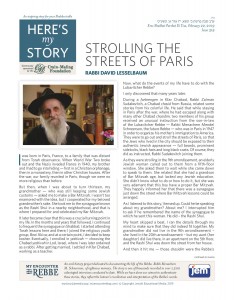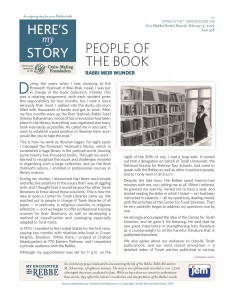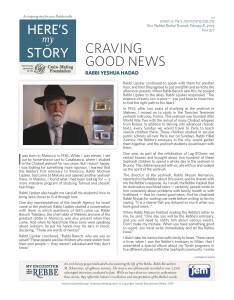Where is Daddy?
During my early childhood, growing up in London, my father was largely absent. He was very ill and hospitalized most of the time, and so my mother had to go to work, while I was looked after by my grandparents. I remember repeatedly asking my mother, “Where is Daddy?” and her answer, “He will be home soon,” and me pressing, “When?” and she responding “I don’t know.”
But around the time I turned five, something changed. In the beginning of 1958, my father was released from the hospital, and we went to live in Gateshead. That is where life returned to normal, I went to school and all was well.
Years went by and, eventually, when my father was in his late sixties, he developed cancer and started fading away; he entered a hospice and died. During the week of shivah – the seven-day mourning period for the dead – my late younger brother Simcha told me and my other brothers a story. He said, “I can’t hold myself back any longer. I have to share with you what happened while Daddy was in hospice. I couldn’t tell you before because the person who told me this wanted to keep it a secret.”
Simcha then went on to relate that during his last days, my father had a visitor, Reb Yisrael Rudzinski, who had gone with him through the camps during World War Two. Reb Yisrael was a Bobover chasid, a tailor by profession, and he was among my father’s closest friends, the survivors who shared every family celebration with us. When he came to visit my father for what turned out to be their final meeting, my brother left the two of them to speak together in private. (more…)








